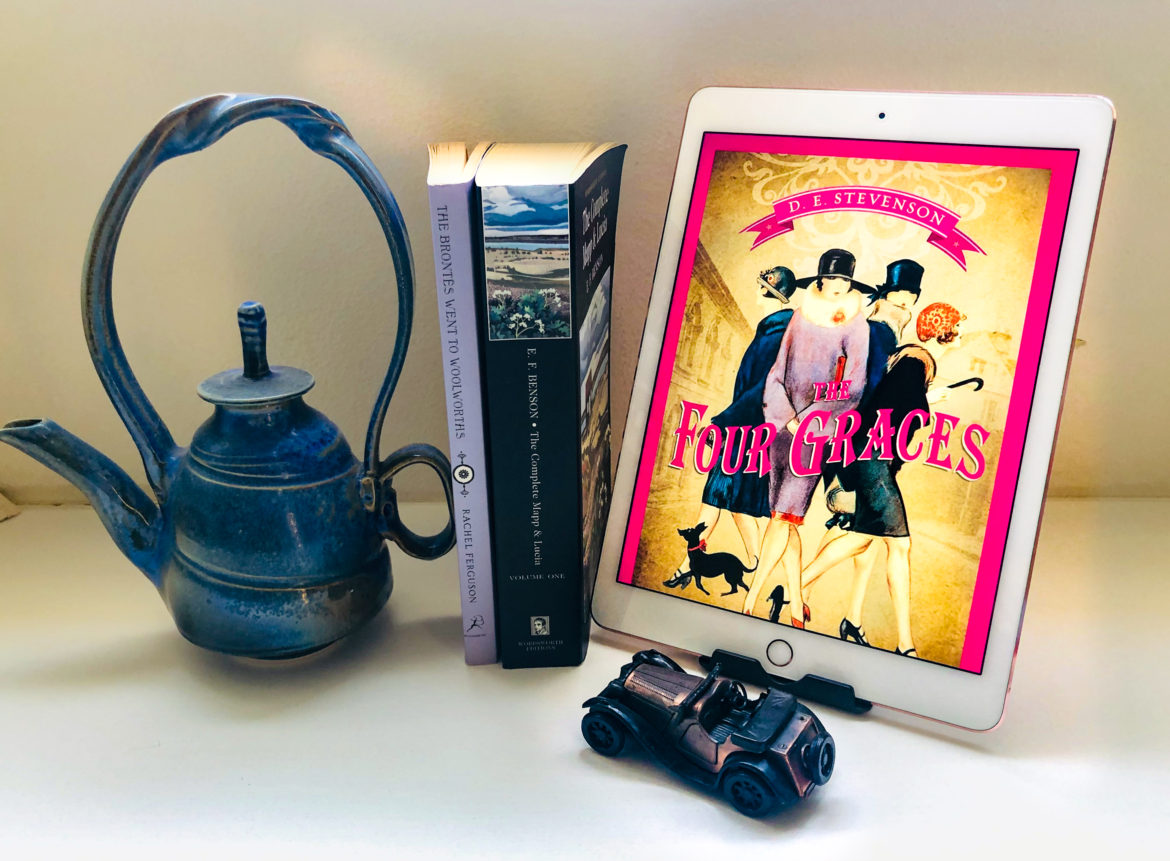The Four Graces is a pleasant, relaxing beach read for the discerning reader. Early 20th century England, life at the vicarage in a quaint parish, local gossip, eligible young bachelorettes — it’s fairly staple Georgian fare. It’s not quite up the same alley as Benson, but there is a sufficient amount of plot to keep it interesting. The war clouds hovering over the story add some depth to the somewhat two-dimensional story line.
The title of the novel refers to the daughters of the Vicar of a tiny village in England. Sal, Liz, and Tilly live with their father, while Addie works in London. With four girls of marriageable age, the central plot predictably includes love interests, and several eligible men make their appearances. For instance, take the young Roderick Herd who inexplicably takes to hanging around the household, sending mixed signals to the girls about his interest. Then there is William Single, a professor-type of indeterminate age, who comes to stay with them. Stevenson takes a fair amount of time in developing their relationships with the girls.
There is also the annoying Aunt Rona, who imposes herself on the household and then becomes even less endearing by needless matchmaking.

In terms of character development, while all four sisters have distinct personalities, readers don’t really get a glimpse into their deeper nature or thoughts. Tilly, the youngest, follows in Sal’s footsteps, but finds her own voice toward the end. The most interesting character in the book, for me, is Liz — she is the only one who imbibes some quality of the modern women. She is outdoorsy, independent, witty, and calls a spade a spade. For unfathomable reasons, she is not her dad’s favorite, who often tries to find the image of his late wife in each of them.
The Four Graces has the usual charms of D. E. Stevenson’s work, who is most famously known for her Miss Buncle books. This book will pass nicely as a young adult novel that gives a glimpse of English village life during the Great War. Even in the tranquility of the small village, the realities of war are not far away. Everything is in short supply and rationed: salt, sugar, meat, clothes, patience, and faith. An extra guest is a strain on the resources. Minor events in village life hold larger significance and are important distractions. There is the fear of separation and death. Men are on the front lines, and women are also joining the services. Each family has a life or few at stake.
But days go on. People get married, have babies, gossip and plan village parties. Because what else can they do?
For more book reviews, go here



4 comments
Reading your interesting review makes me want to sit down with a cup of tea and read the book!
Thank you for sharing Vipula…
Happy August!
oxo
Hi Patty, Its a sweet little book. An easy and perfect summer read.
The quaint and quiet settings of the story does make this an enjoyable read.
Yes its light but I did not think it had a lot of depth